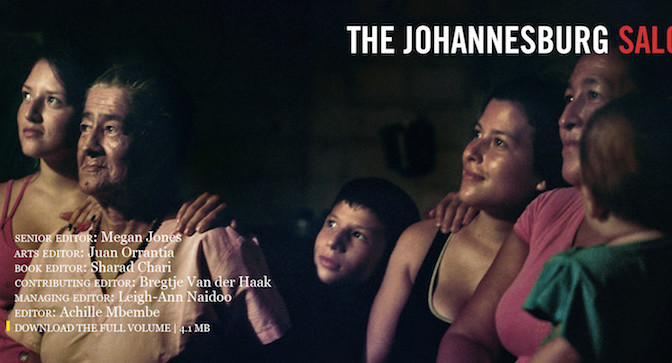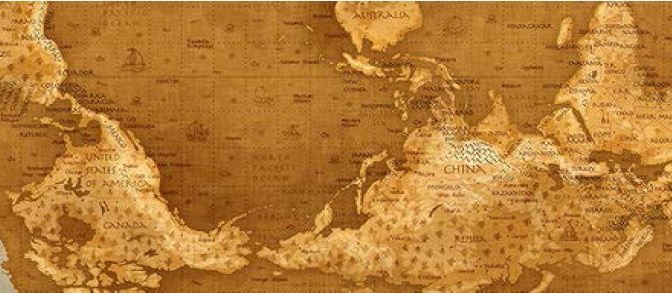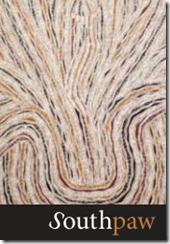SAEM MAJNEP MEMORIAL SYMPOSIUM ON TRADITIONAL ENVIRONMENTAL KNOWLEDGE

To be held at the University of Goroka, 31 October – 2 November 2012
CALL FOR EXPRESSIONS OF INTEREST
Ian Saem Majnep was a member of the Kalam tribe from the Kaironk Valley in Madang Province who was born around 1948. He worked closely with the late Ralph Bulmer, the Foundation Professor of Anthropology at the University of PNG, and also with Andrew Pawley, now Emeritus Professor of Linguistics at the Australian National University, on the documentation of the Kalam language and traditional environmental knowledge. Saem’s work on the documentation of traditional Kalam knowledge was recognized through the award of an honorary doctorate by the University of PNG in 1989. The Saem Majnep Memorial Symposium (‘the Symposium’) is named in honour one of PNG’s first internationally recognized indigenous knowledge experts, who sadly passed away in 2007. The basic aim of the Symposium is to enhance the capacity of universities in PNG to train students in the appreciation and documentation of traditional environmental knowledge, engage them in deeper processes of interaction with the local holders of such knowledge, and involve them in wider processes of biocultural education, expression, and revitalization.
Background
Indigenous knowledge holders are increasingly demanding recognition for their practices without that recognition undermining the position of their knowledge as a socially embedded process. Recognition of Intellectual Property Rights has proved to be an inadequate route to deal with this issue. Whatever ‘indigenous knowledge’ was and is, it is also undergoing transformation in the contemporary world – it does not exist in a vacuum, but is embedded in the changing relationships internal to indigenous communities, and between members of these communities and external interest groups. The development of new models for the documentation and dissemination of such knowledge must therefore be based on recognition of at least three issues:
- The growing awareness of external threats to the reproduction of indigenous knowledge and practices, offset by a growing awareness in indigenous communities of the importance of preserving these things for future generations.
- The desire of indigenous peoples to present themselves to the outside world as knowledge holders and to gain recognition of their stewardship of lands and environments based on relations of mutual constitution rather than alienable possession.
- The opportunities presented by new technologies for recording and transmitting indigenous knowledge and practices in digitally mediated forms.
There is growing evidence that most of the students now entering universities in PNG come from urban family backgrounds, have little experience of rural village life, and are largely unfamiliar with traditional environmental or ecological knowledge (TEK). There is already some provision for the design and delivery of courses relating to TEK in the PNG university system, but much more could be done to improve the resources available for the teaching of such courses. Although some university graduates find employment in non-government or community-level organizations that have some interest in the documentation or revaluation of TEK, they have often received very little in the way of relevant training while at university. The same is true of the vast majority of graduates who find employment in organizations that have no such interest. As the years go by, an increasing proportion of the individuals who count as members of the national elite are losing all connection with the forms of knowledge possessed by village-level experts who commonly have very little in the way of formal education. Some provision is already made for the teaching of TEK in PNG’s secondary school curriculum, but there is again a notable shortage of suitable curriculum materials. The University of Goroka can play a key role in helping to fill this gap because of its role in training and current and future secondary school teachers.
Outcomes of the Symposium
We expect the short-term outcomes of the Saem Majnep Memorial Symposium to include:
- A review of what has so far been achieved in the documentation and dissemination of TEK in and from PNG, with particular focus on partnerships between scientific and local experts, and on the relationship between research and education.
- A review of new technologies for documentation and dissemination of TEK at local, national and international scales, with appropriate recognition of issues involving intellectual property rights.
- An outline for the first edition of a textbook or manual to be used in training tertiary students (including secondary school teachers) in practical techniques for the documentation and dissemination of TEK.
- Plans for development of additional funding proposals for development of institutional capacity and resources to undertake such documentation and dissemination through the formal education system in PNG.
- Plans to connect this type of activity with the integration of TEK into local-level land use and resource management systems in PNG.
Longer term plans to build institutional capacity to document and disseminate TEK in PNG will be based on these short-term outcomes. All participants will be asked to formally approve the use of their contributions to the Symposium in any future publication or in any document used for teaching purposes.
Organisation of the Symposium
Key participants in the Symposium will include:
- Scientific and local experts who have been involved in the documentation of TEK in PNG through partnerships of the kind pioneered by Ralph Bulmer and Saem Majnep;
- Individuals with particular expertise and experience in teaching university students about TEK in PNG;
- Individuals with particular expertise and experience in developing the use of new technologies for the documentation and dissemination of TEK; and
- People with a professional interest in the potential use of TEK as a means to promote the conservation of biological diversity or the management of local ecosystems in PNG.
The Symposium organisers are planning to invite approximately 30 participants from outside Goroka, including 10 local experts in TEK from Eastern Highlands and surrounding provinces with road connections to Goroka. In addition, we plan to invite another 20 participants from Goroka itself, including UOG staff and staff of partner organisations based in Goroka.
The Symposium will be advertised in PNG’s national newspapers, as well as by means of posters in UOG, in order to boost attendance by interested members of the public (including schoolteachers) from Goroka and surrounding areas, as well as by interested staff and students of UOG (including school-teachers taking in-service courses). Part if not all of the Symposium proceedings will be conducted in Tok Pisin in order to facilitate the participation of local indigenous knowledge experts who do not speak English.
A Symposium Steering Committee (SSC) has already been established at UOG. The SSC is responsible for the identification of individuals to be invited to the Symposium and for sending out the invitations, but is receiving support and advice from partner organisations in the identification of individuals to be invited to the Symposium from outside Goroka.
Expressions of Interest
If you would like to be funded to participate in the Symposium, please send a short (maximum 200-word abstract) of the topic on which you would like to speak and an even shorter (maximum 100-word) note about your past and current interest in the documentation and dissemination of TEK in PNG to:
- Mr Wasang Baiio, Symposium Steering Committee Chairman (wasangbaiio5@gmail.com)
- With copy to: A/Prof. Colin Filer, Australian National University (colin.filer@anu.edu.au)
If you are able to fund your own travel to Goroka and would like to participate as an observer or discussant, please just send a short note about your past and current interest in the documentation and dissemination of traditional environmental knowledge in PNG.
A Symposium program will be developed when the list of likely expert participants has been established and they have indicated the topics on which they would like to speak.
We aim to have a draft program ready for circulation before the end of September, so would like to receive expressions of interest by Friday 21 September at the latest.




 If you’re in Melbourne on 11 April, please come along to this important public event. You don’t have to be an employee of University of Melbourne to have an interest in the impact of neo-liberalism on our public institutions.
If you’re in Melbourne on 11 April, please come along to this important public event. You don’t have to be an employee of University of Melbourne to have an interest in the impact of neo-liberalism on our public institutions.



